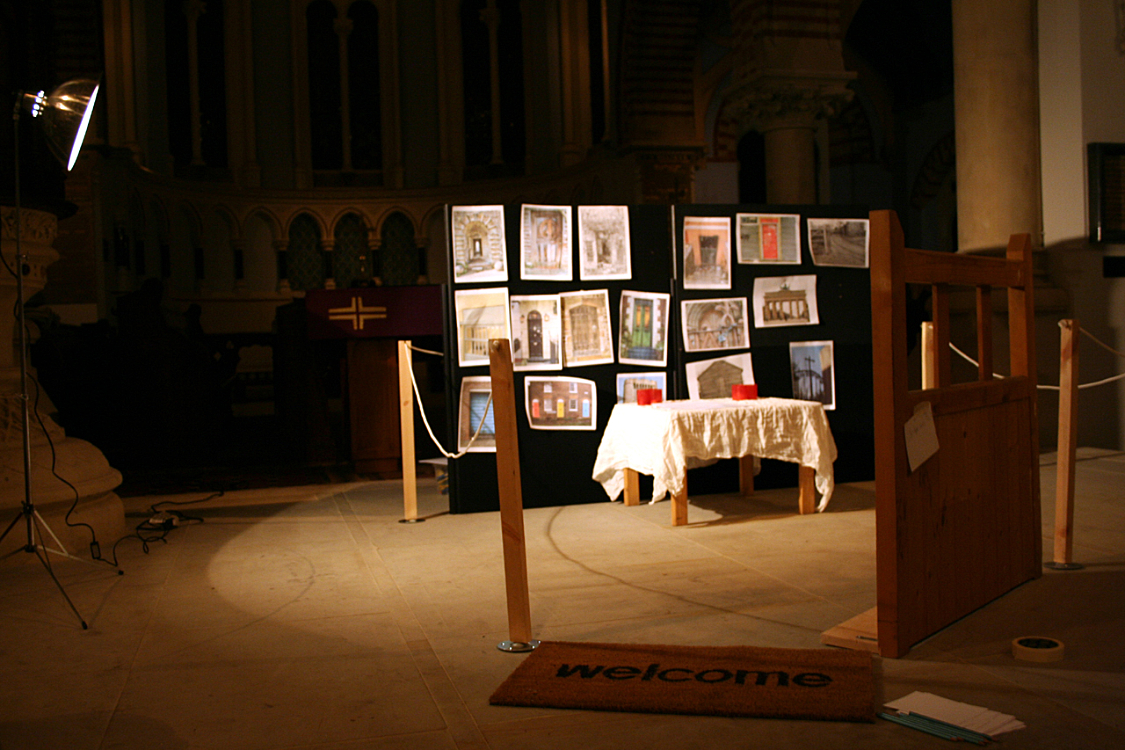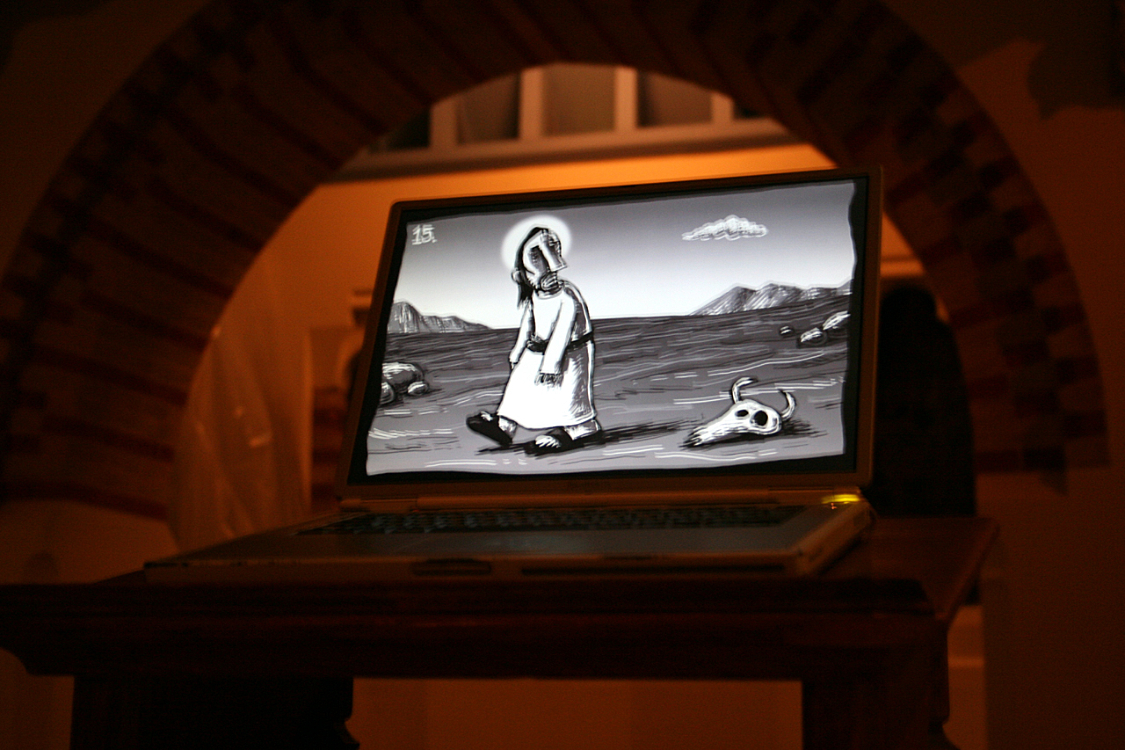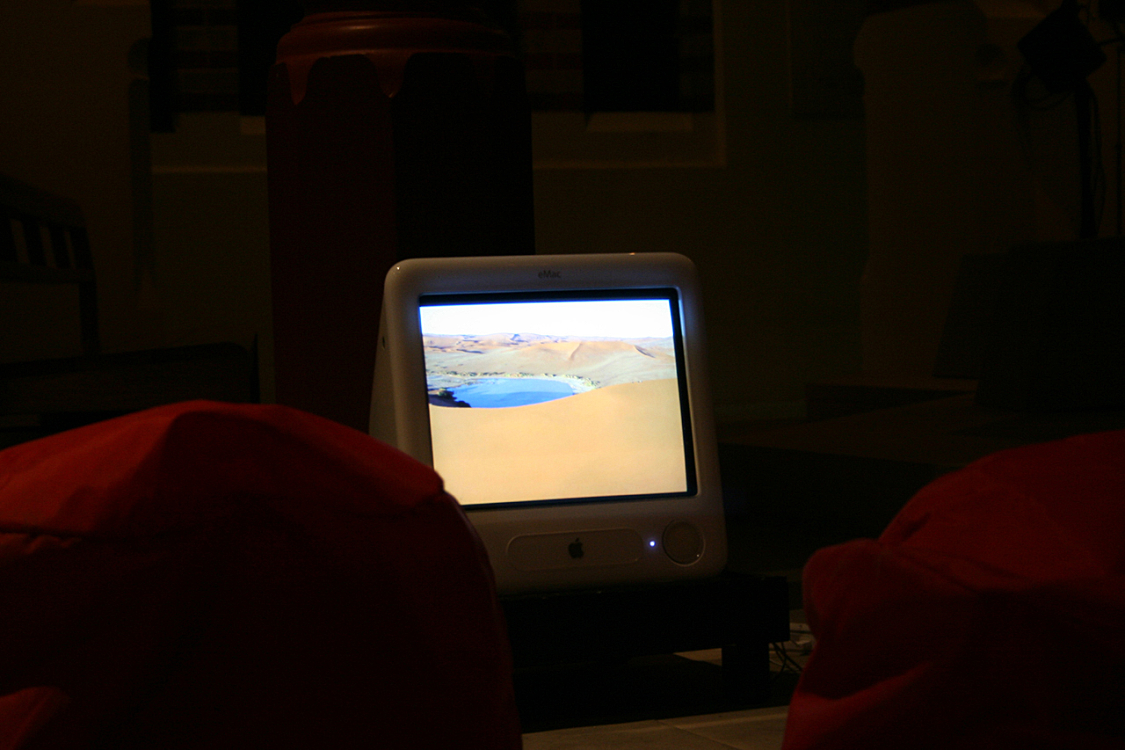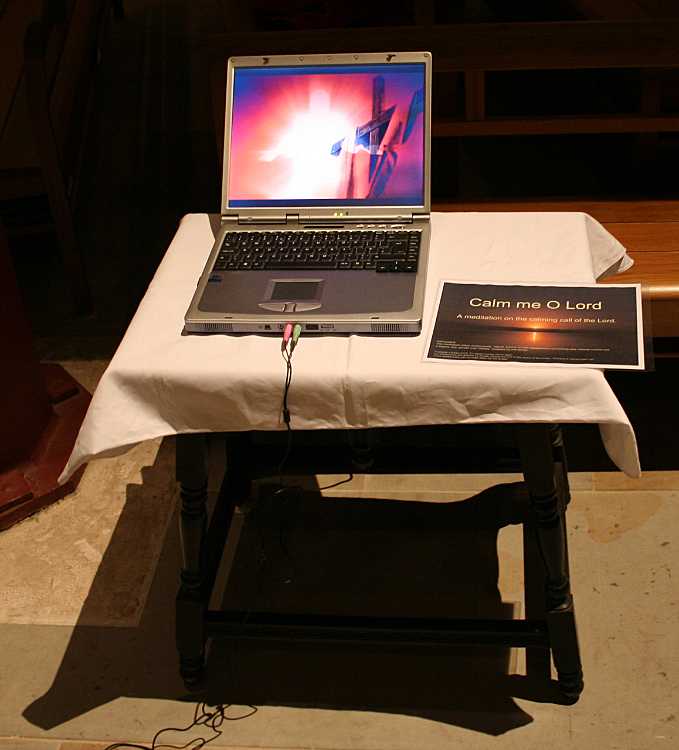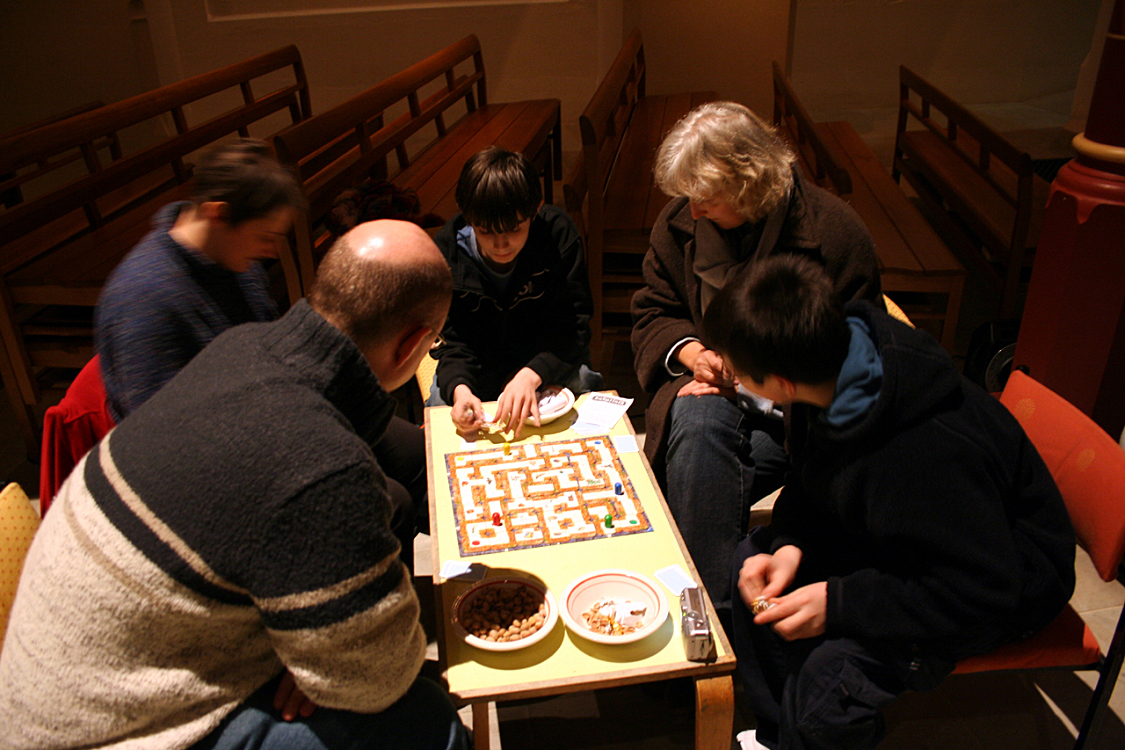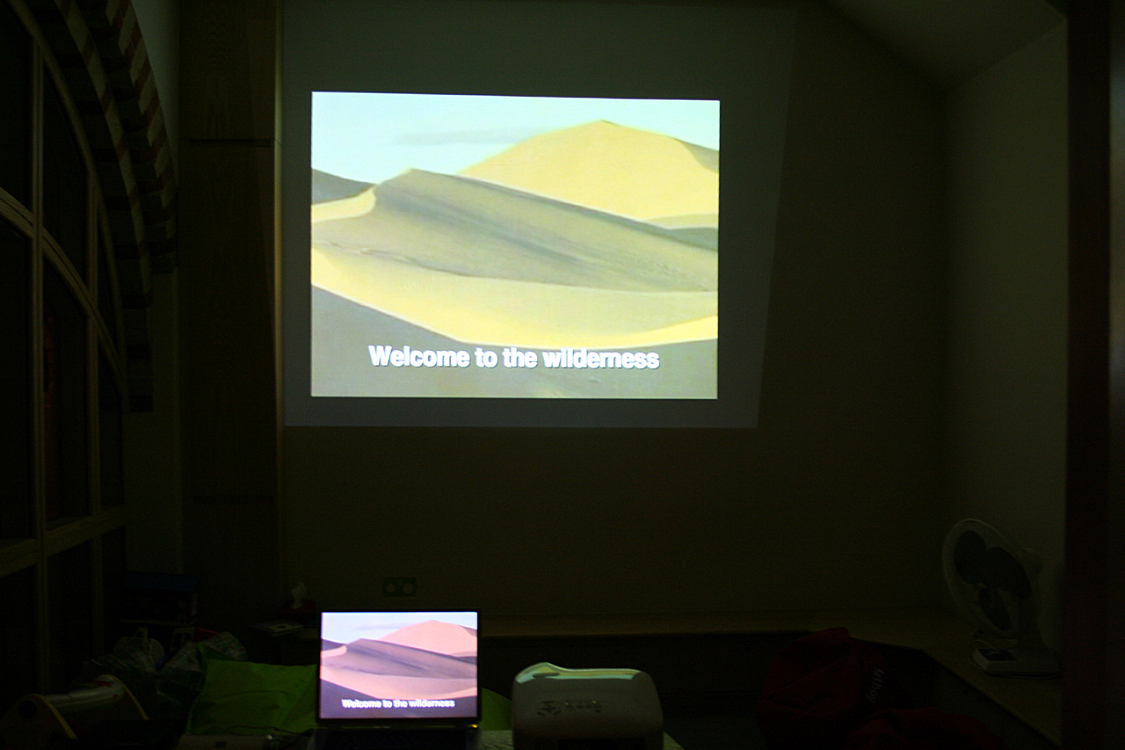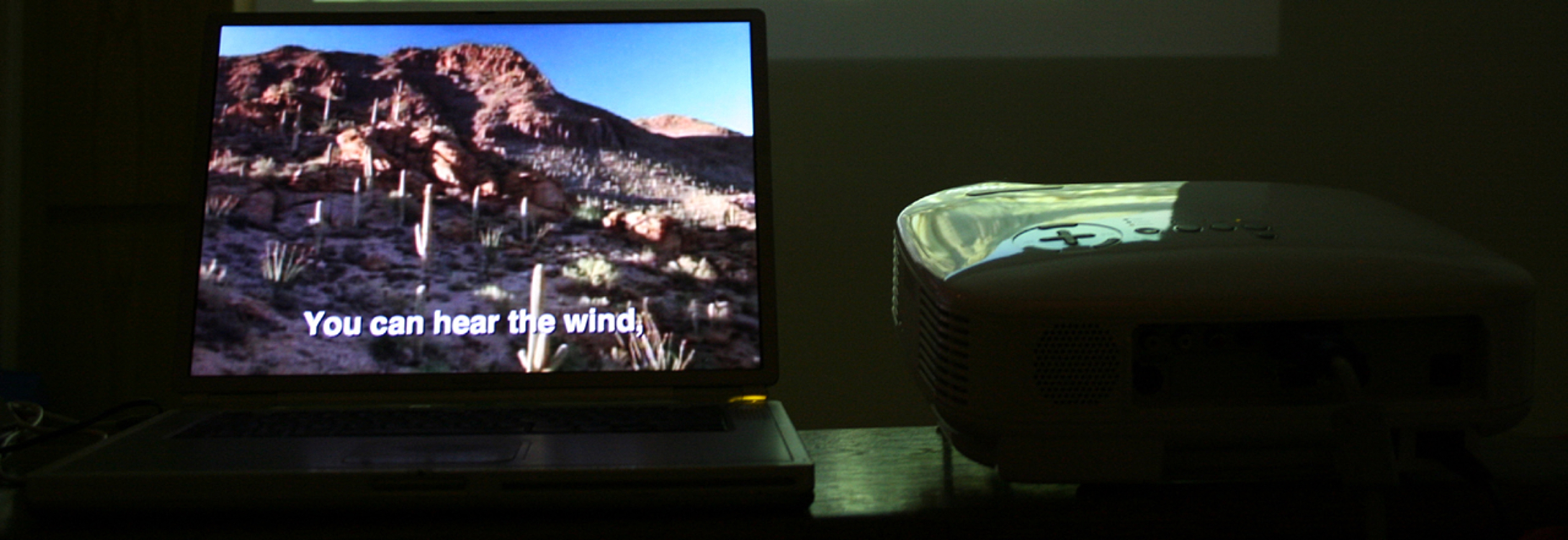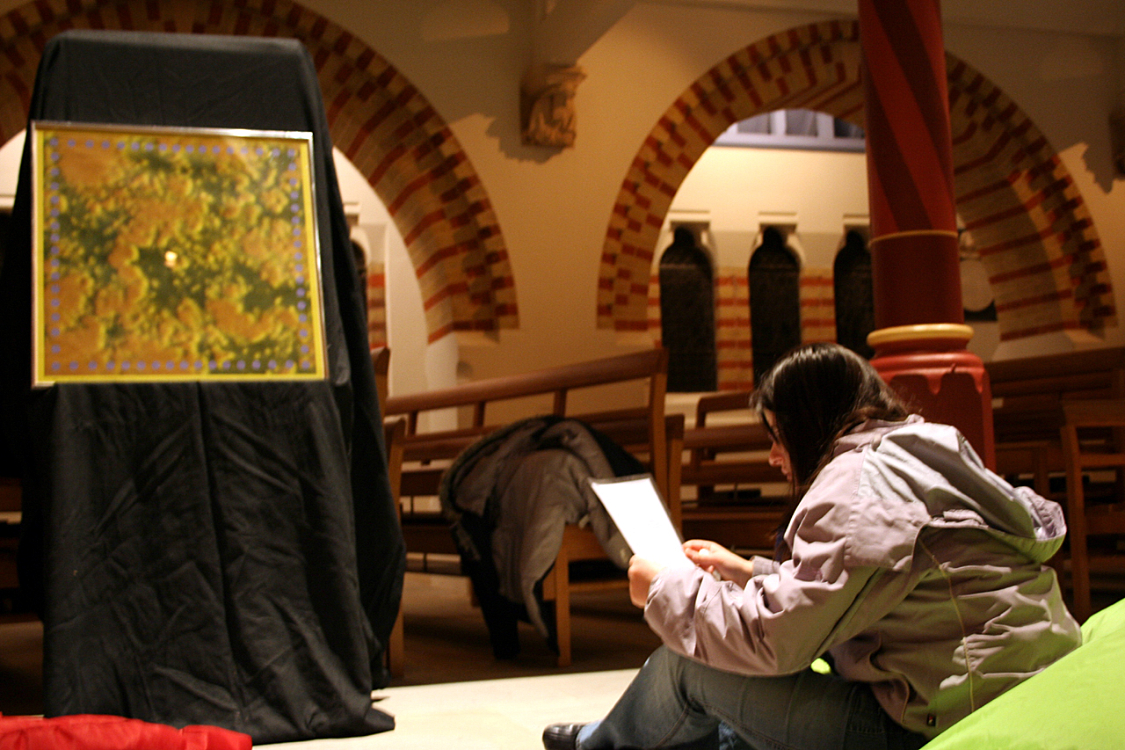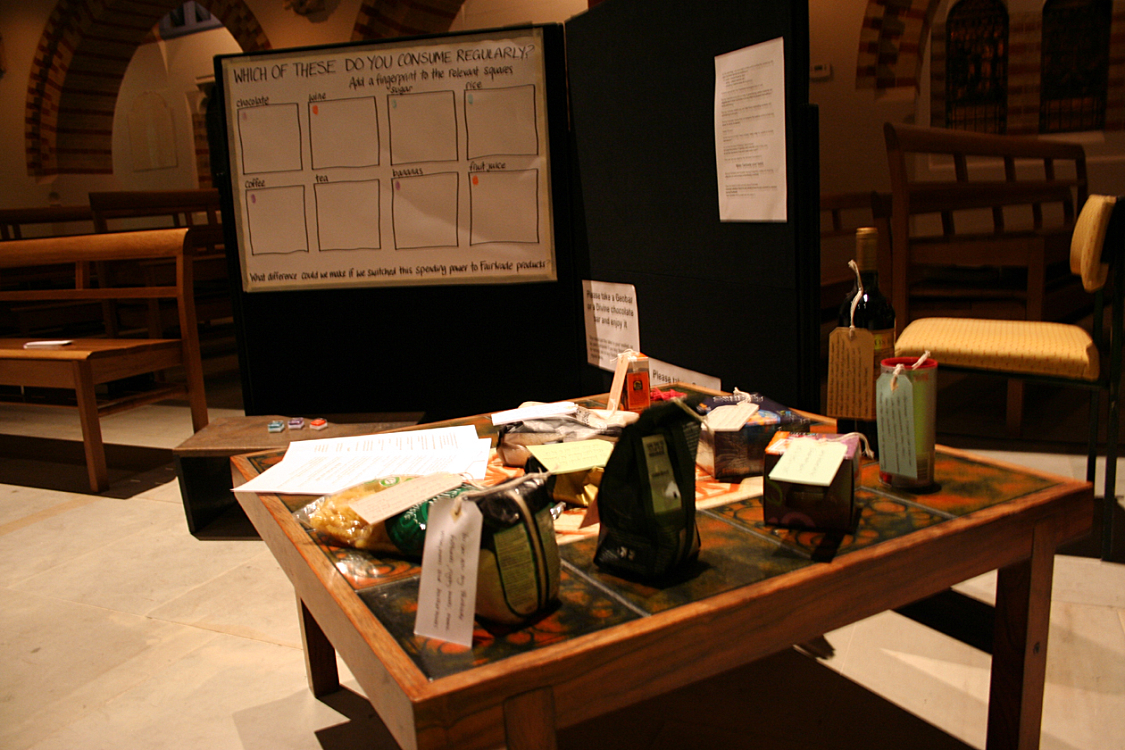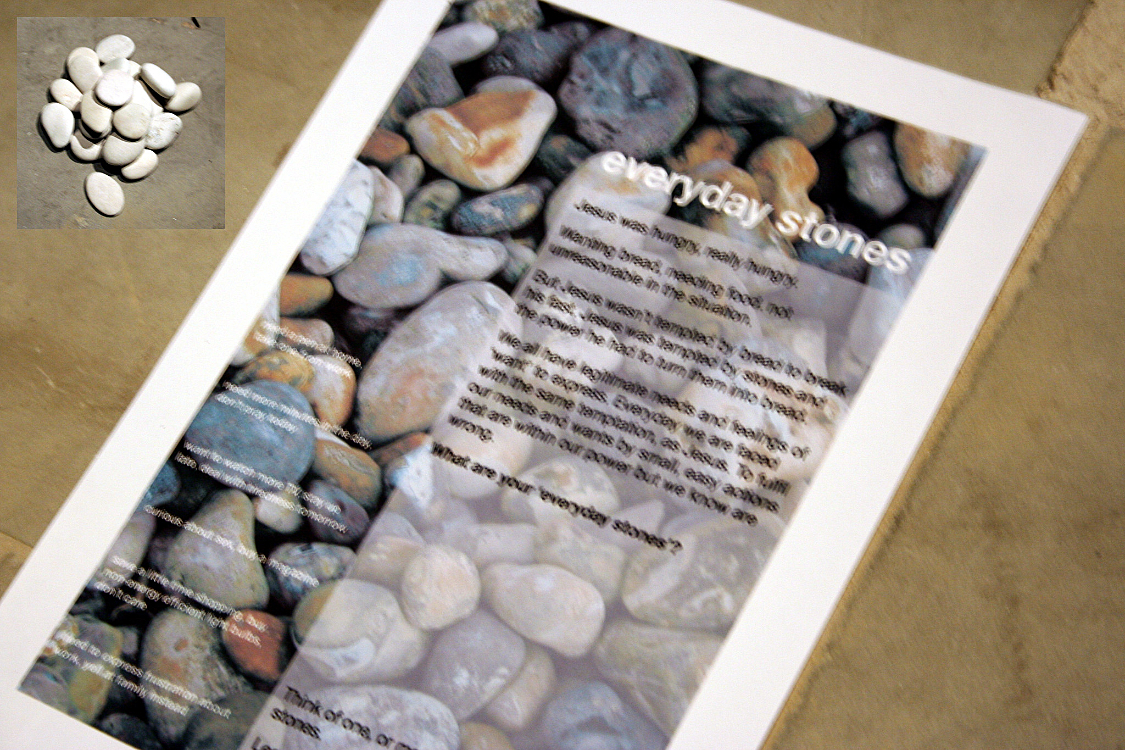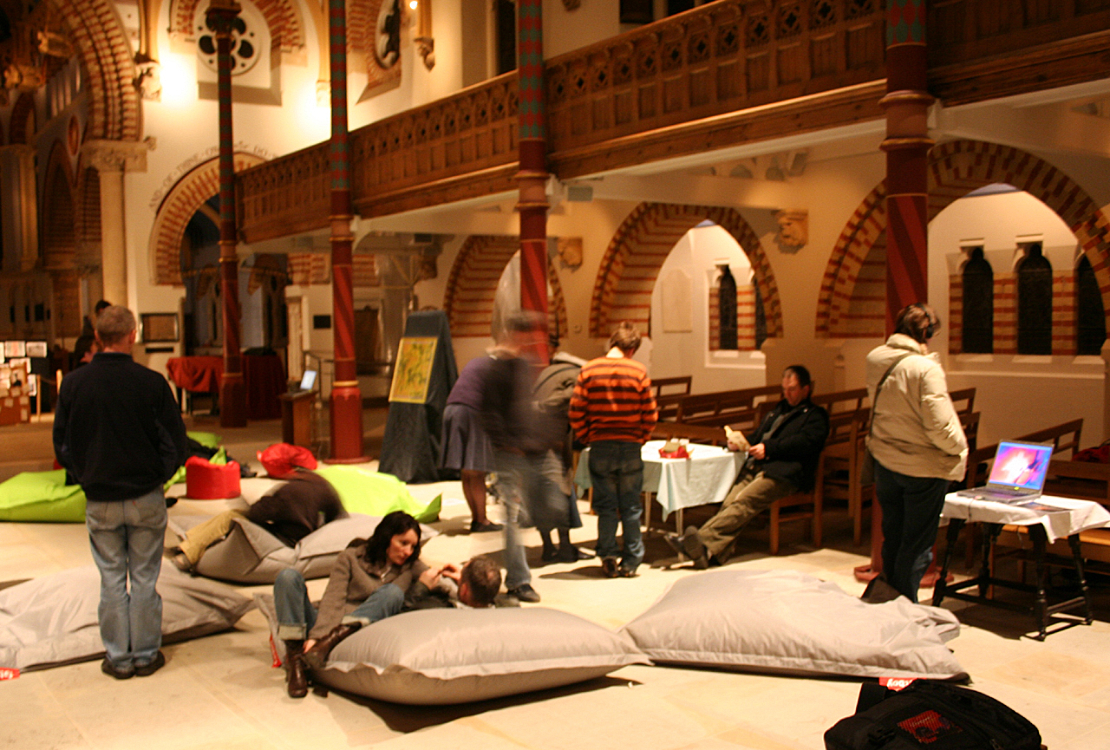March 2006: Lent Bring Your Own Station
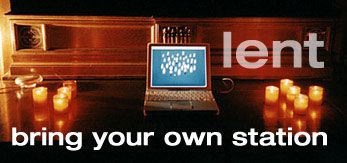
this was the text that we sent round to publicise it that sums up the approach...
Part of the grace ethos is participation. The next grace puts this to the ultimate test...
Please bring a station with you on the theme of lent and/or a tune on an ipod or CD.
What is a station?
One of the sorts of service we do at grace involves walking around the worship space interacting with stations that have been set up in advance that contain something to cause you to reflect, pray, worship, think, or actively participate in a ritual. These might be as simple as lighting a candle, reading a story, writing a prayer, adding a stone to a pile, looking at a video loop, listening to a meditation, tasting some fruit or whatever. If you’ve never done this before even better – this could be the start of something...
What do I do?
The theme is lent. Lent is a season of preparation for Easter typically focused on discipleship and following Christ. Do anything that relates to that. If you want to work from a scripture passage then three ideas to spin off from might be a) Jesus' temptations in the wilderness (we have done many a lent service on the theme of desert) b) the return of the prodigal son c) Psalms. Create something that is self contained for people to visit – i.e. it has things that people can engage with without you having to be there to explain it. So if there are instructions print them out for people to read and then add what you like in the way of things to look at or read, activities, small rituals, food for thought etc.
When will it be set up?
Please arrive early to set your station up between 7 and 7:30pm. We will allocate you a space to set up. The earlier you are the more choice you will get.
What about the music?
We will have a CD player and ipod mixer. So if you have a tune (that relates to the lent theme in some way) bring it along and you can play it.
How will it actually work?
Grace will start at 8pm. Music that people bring will provide a soundscape while everyone walks round and interacts with the stations for as long as they like. Then when you’re done the café wil be open as normal. It’s that simple.
I’m not sure I can do anything up to standard
Please don’t be shy or think what you do won’t be good enough. It can be really simple. Just work with an idea. We value creativity, participation and risk so go for it.
I need help
If you want to bounce your idea of someone else or if you need some technical stuff (a TV or slide projector for example) then e-mail us
Do I need to let you know what I am doing in advance?
No. We quite like the element of surprise so do just turn up and set up your station.
Can I come if I haven’t got a station?
Of course everyone is welcome whether or not you have done a station. But if we all think that way it may be a very short grace!
some of the stations were:
Entrance and Exit
Wherever you look there are entrances and exits - doorways in and doorways out. Each one marks out a different territory where particular rules apply. Each space on the other side of these thresholds, these boundaries, is the domain of someone.
I remember an aunt in the north of England who had a particular pride in keeping the doorstep polished and the kettle on. Her domain was a place of welcoming and hospitality but of course not all spaces are as welcoming as my aunt’s. Some places are selectively welcoming, keeping out undesirable elements while only opening the doors to those who fit certain criteria.
The Celts used the idea of the open gate. I like to think that this image – a gate through which the land is visible, enticing and accessible – is a good way of understanding the gateway which is open to all who choose to venture that way. This is an idea which offers us all hope, but in order to go to one place we necessarily have to leave another – so the gateway is both an entrance and an exit.
So what do you want to leave behind and where do you want to go?
40
si smith's wonderful slide set '40'
give
animation by joel baker
calm
game
searcher
mike's debut video sequence the searcher
naz's picture
fairtrade
everyday stones
Jesus was hungry, really hungry.
Wanting bread, needing food, not unreasonable in the situation.
But Jesus wasn't tempted by bread to break his fast. Jesus was tempted by stones and the power he had to turn them into bread.
We all have legitimate needs and feelings of 'want' to express. Everyday we are faced with the same temptation, as Jesus. To fulfil our needs and wants by small, easy actions that are within our power but we know are wrong.
What are your 'everyday stones'?
Leave the temptation behind, as one of the pebbles on this pile.
how not to observe lent
using a story from Noel Streatfeild's autobiographical 'A Vicarage Family'. Her father reluctantly allows his daughters to go to a birthday party in Lent, but they’re not allowed to wear party dresses or eat anything except plain bread and butter! Unfortunately at the party the bread and butter had hundreds and thousands sprinkled on, and they had to confess that they'd eaten them to their father afterwards. One of them had eaten some cake too and was also punished.
luxuries and necessities
cards with pictures of items which may or may not be essential
(anyone remember any others?)
Photos
<< swipe left

